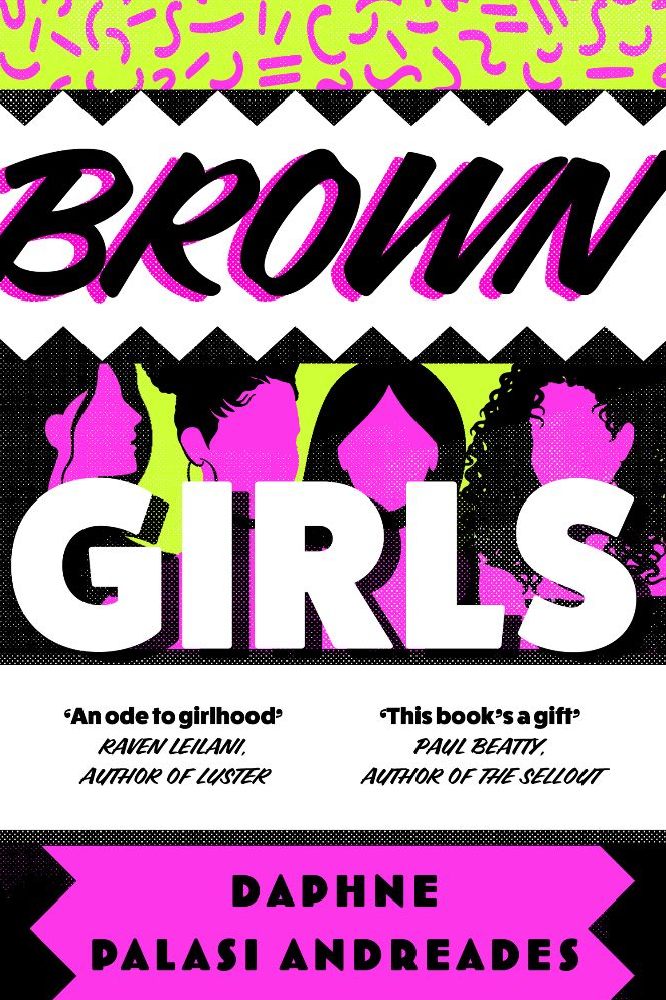If you’re after a carefully constructed plot-driven narrative with twists and turns and all the rest of it, let us tell you now that you won’t find it in Daphne Palasi Andreades’ unique debut Brown Girls.

Brown Girls by Daphne Palasi Andreades / Image credit: HarperCollins
Instead, you’ll find something like poetry; a novel-length stream-of-consciousness exploring every inch of the lives of a bunch of girlfriends from Queens, New York, all with immigrant families, from their pre-pubescent fervor to their jaded adult existences.
Written in second person perspective, the use of “we” and “our” almost acts as an aid to empathy. You are brought into the shoes of people that are either worlds apart from you, or not so different from you at all. Either way, the stark contrasts between your life and the lives of these brown girls are revealed, as well as the subtle similarities that keep you immersed in these stories. By the final page, the nostalgia feels like your own, not just that of our ubiquitous narrators.
In Brown Girls we navigate a world of hypocrisy and false empathy. How casual racism begins at a young age with white teachers calling them the wrong names, and how their parents have their own racial prejudices. How parents reinforce gender and racial stereotypes on their daughters while behaving how they please. How they do everything in their power to encourage studiousness, only to accuse their children of snobbery. But when all they are taught about are the works of white people; white authors, white scientists, white artists; isn’t that disconnect between one’s roots and one’s future inevitable?
The “brown girls” of the story are constantly patronised with pro-immigrant but anti-”illegals” spiel from the families of their white friends and lovers. They’re hurt by suggestions that they get scholarships over white girls to fill some kind of diversity quota. There’s a hyper-sensitivity which sees white girls and brown girls never quite comfortable with each other.
Perhaps the most poignant aspect of this novel is the exploration of the pressure to be representative of one’s own ancestry, as if everything one does has to feed into one’s race: “We are so visible we have become invisible”. At the same time, “Western-ness” becomes a lifelong struggle. The West is all they’ve ever known, yet they exist separately. Their homelands offer no familiarity, and their American-ness stands out a mile: “So weak, so American. This is our privilege”
Besides race and roots, there are myriad more themes that find their way into Brown Girls; drugs and crime, sexuality and gender, motherhood and choices, grief and trauma, as well as none too subtle allusions to Trump’s America and the COVID-19 pandemic. All things that anyone no matter their race or creed can relate to.
From pre-pubescence to death is the journey that Daphne Palasi Andreades takes us on, which sounds morbid but in reality feels like a natural end. And as much as Brown Girls is the story of many, we feel the sting of solitude and alienation as if this were the story of one.
MORE: Iconic People of Colour book review
Brown Girls is a true tour-de-force in POC literature; a poetic landscape of friendship, coming-of-age and finding one’s footing in a world that as surely as it belongs to us, often feels far away from home.
Tagged in Books Book releases

